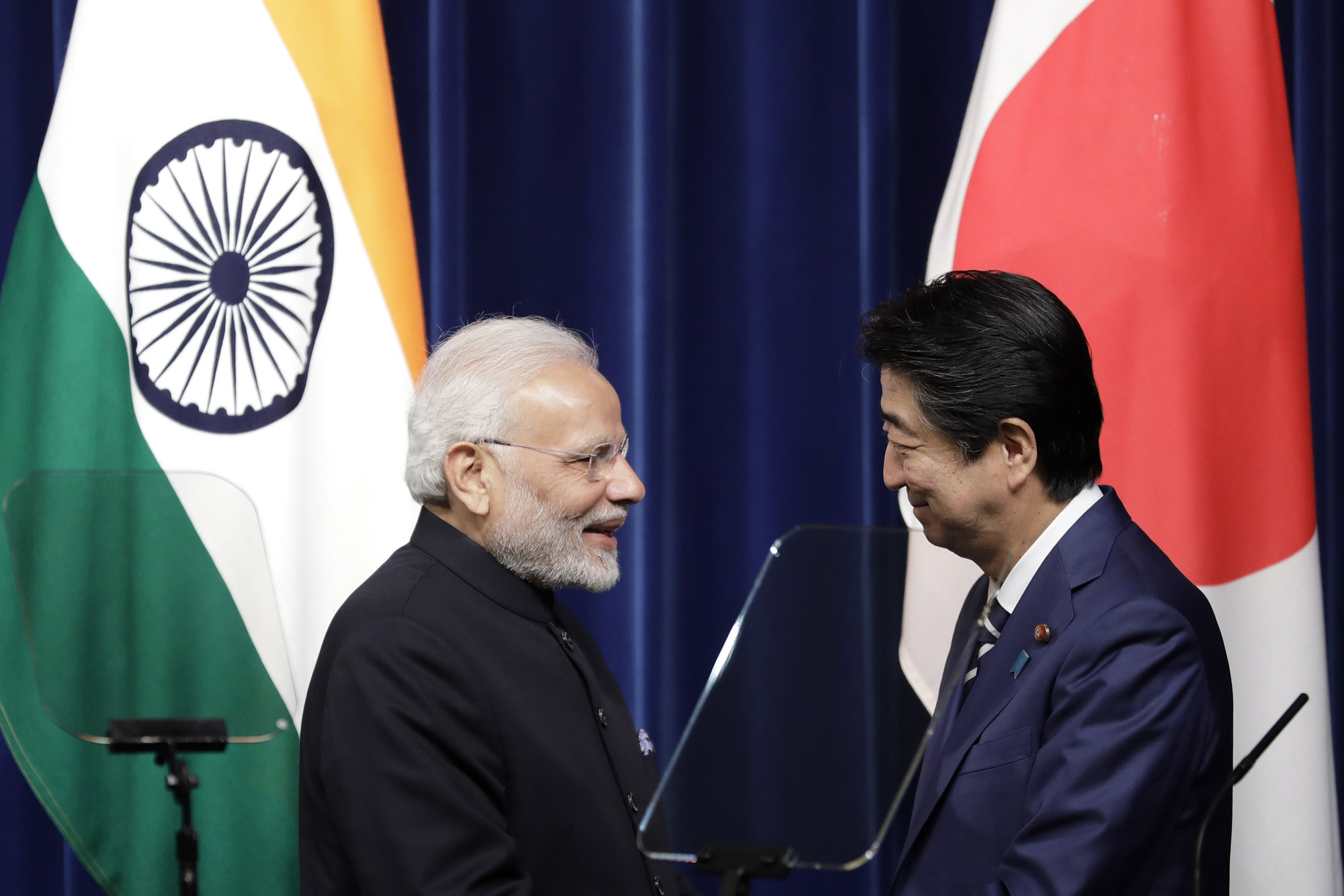On his weeklong tour of Asia, U.S. Vice President Mike Pence has been promoting a vision of a "free and open" Indo-Pacific region, characterized by unimpeded trade flows, freedom of navigation, and respect for the rule of law, national sovereignty and existing frontiers. The question is whether this vision of an Indo-Pacific free of "authoritarianism and aggression" is achievable.
One country that seems willing to contribute to realizing this vision is Japan. In fact, Prime Minister Shinzo Abe is the originator of the "free and open Indo-Pacific" concept that lies at the heart of U.S. President Donald Trump's new strategy, the successor to his predecessor Barack Obama's unhinged "pivot" to Asia.
Having historically punched above its weight globally, Japan is responding to China's muscular rise by strengthening its own position in the region. Taking advantage of its considerable assets — the world's third-largest economy, substantial high-tech skills and a military that has recently been freed of some legal and constitutional constraints — Japan is boosting its geopolitical clout.


















With your current subscription plan you can comment on stories. However, before writing your first comment, please create a display name in the Profile section of your subscriber account page.